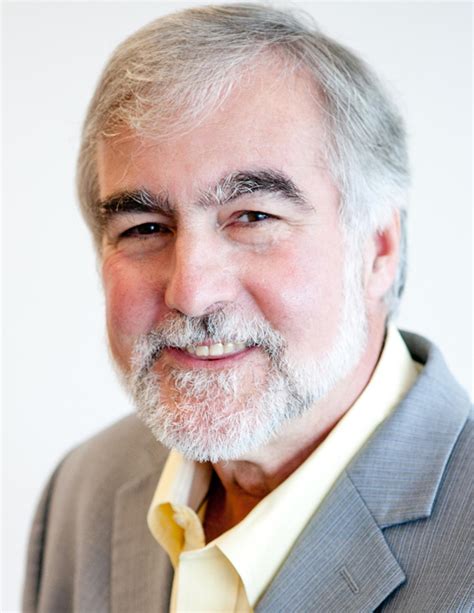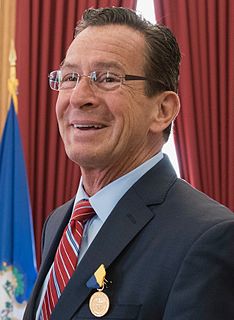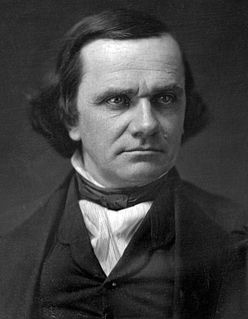Ein Zitat von John Taylor
Als die Verfassung der Vereinigten Staaten ausgearbeitet und angenommen wurde, waren sich diese hohen Vertragsparteien ausdrücklich darüber einig, dass sie sich nicht in religiöse Angelegenheiten einmischen würden. Nun, wenn unsere ehelichen Beziehungen nicht religiös sind, was ist es dann? Diese Eheordnung war eine direkte Offenbarung für uns durch Joseph Smith, den Propheten. . . . Dies ist eine Offenbarung Gottes und ein Gebot an sein Volk, und deshalb ist es meine Religion. Ich glaube nicht, dass der Oberste Gerichtshof der Vereinigten Staaten das Recht hat, sich in meine religiösen Ansichten einzumischen, und indem er dies tut, verletzt er seine heiligsten Verpflichtungen.
Verwandte Zitate
Meiner Ansicht nach ist es der Regierung der Vereinigten Staaten durch die Verfassung untersagt, sich in religiöse Institutionen, deren Lehren, Disziplinen oder Übungen einzumischen. Dies ergibt sich nicht nur aus der Bestimmung, dass kein Gesetz über die Gründung oder freie Ausübung einer Religion erlassen werden darf, sondern auch aus der Bestimmung, die den Staaten die Befugnisse vorbehält, die nicht an die Vereinigten Staaten delegiert wurden. Sicherlich wurde dem Generalgouvernement keine Befugnis übertragen, religiöse Übungen vorzuschreiben oder Autorität in irgendeiner religiösen Disziplin zu übernehmen. Es muss dann bei den Staaten liegen.
Wir sind uns alle einig, dass weder die Regierung noch die politischen Parteien sich in religiöse Sekten einmischen sollten. Ebenso wahr ist, dass religiöse Sekten sich nicht in die Regierung oder politische Parteien einmischen sollten. Wir glauben, dass sowohl die Sache einer guten Regierung als auch die Sache der Religion unter solchen Eingriffen leidet.
Ich bin der größte Befürworter der Verfassung ... Der einzige Fehler, den ich an der Verfassung finde, ist, dass sie nicht breit genug ist, um den gesamten Bereich abzudecken. Obwohl es vorsieht, dass alle Menschen Religionsfreiheit genießen sollen, legt es doch weder die Art und Weise fest, wie diese Freiheit gewahrt werden kann, noch sieht es die Bestrafung von Regierungsbeamten vor, die sich weigern, die Menschen in ihren religiösen Rechten zu schützen, und bestraft diese Mobs, Staaten, oder Gemeinschaften, die aufgrund ihrer Religion in die Rechte der Menschen eingreifen. Seine Gefühle sind gut, aber es bietet keine Möglichkeit, sie durchzusetzen.
Denn der Gesetzentwurf zur Reservierung eines bestimmten Grundstücks in den Vereinigten Staaten für die Nutzung durch die Baptistenkirche enthält einen Grundsatz und einen Präzedenzfall für die Verwendung von Geldern der Vereinigten Staaten für die Nutzung und Unterstützung religiöser Gesellschaften, entgegen dem Artikel von die Verfassung, in der es heißt: „Der Kongress darf kein Gesetz erlassen, das eine religiöse Einrichtung respektiert.“
[D]er Gesetzentwurf geht über die rechtmäßige Autorität hinaus, auf die Regierungen durch die wesentliche Unterscheidung zwischen zivilen und religiösen Funktionen beschränkt sind, und verstößt insbesondere gegen den Artikel der Verfassung der Vereinigten Staaten, der besagt, dass der Kongress kein Gesetz bezüglich einer religiösen Einrichtung erlassen darf. ... Diese besondere Kirche wäre daher per Gesetz bislang eine religiöse Einrichtung, wobei bestimmten Artikeln in ihrer Verfassung und Verwaltung Rechtskraft und Sanktion verliehen würden.
Die Vereinigten Staaten haben keine Religionsfreiheit geschaffen. Die Religionsfreiheit schuf die Vereinigten Staaten von Amerika. Aus diesem Grund sind wir heute hier. Das ist eine wesentliche Freiheit und ein wesentliches Recht, und ich glaube nicht, dass man dieses Recht aufgibt, indem man einfach einen Job annimmt.
Die Trennung von Kirche und Staat ist unter anderem deshalb notwendig, weil der Staat sich nicht in die religiöse Vision oder den religiösen Propheten einmischen sollte, wenn die Religion gut ist. Es muss einen Bereich der Wahrheit geben, der über die politische Kompetenz hinausgeht, deshalb muss es eine Trennung der Kirchen geben, aber wenn Religion schlecht ist, und eine schlechte Religion ist eine Religion, die einer bestimmten Sache höchste Heiligkeit verleiht. Dann darf sich die Religion nicht in den Staat einmischen – daher ist eines der Grundprinzipien der Demokraten, wie wir sie in Amerika kennen, die Trennung von Kirche und Staat.
Religion, die ihren Empfängern aufgezwungen wird, erzeugt entweder Gleichgültigkeit oder Groll. Die meisten amerikanischen Religionsführer haben erkannt, dass Überzeugung weitaus mächtiger ist als Zwang, wenn es darum geht, die eigenen religiösen Ansichten zu vertreten. . . . Es überrascht daher nicht, dass eine große Zahl religiöser Führer den Obersten Gerichtshof bei seinen Gebetsentscheidungen unterstützt hat.
Gott hat uns eine Offenbarung in Bezug auf die himmlische Ehe gegeben. Ich habe es nicht gemacht. Er hat uns bestimmte Dinge zu dieser Angelegenheit gesagt, und sie möchten, dass wir diesen Grundsatz abschwächen und ändern und ihn auf die Ansichten der Zeit anwendbar machen. Das können wir nicht tun; Wir können uns auch nicht in die Gebote Gottes einmischen, um den Überzeugungen oder Geboten der Menschen nachzukommen. Ich kann es nicht und werde es auch nicht tun.
Es gibt die Jewish Agency, die viel Geld von den Vereinigten Staaten bekommt, von amerikanischen Juden, deren einzige Aufgabe darin besteht, Siedlungen zu schaffen. Es ruft Menschen auf der ganzen Welt – vor allem in Russland und übrigens auch in den Vereinigten Staaten – dazu auf, sich in den besetzten Gebieten niederzulassen, als eine Art religiöses Statement, eine Art nationalistisches Statement: „Dies ist ein Land, dem man gegeben hat.“ uns von Gott.“ Viele Israelis, die nicht an Gott glauben, glauben, dass Gott uns dieses Land gegeben hat.
Ich spreche jetzt von den Rechten gemäß der Verfassung und nicht von moralischen oder religiösen Rechten. Ich diskutiere nicht die Moral der Menschen in Missouri, sondern lasse sie diese Angelegenheit selbst regeln. Ich bin der Meinung, dass die Menschen in den Sklavenstaaten genauso zivilisierte Menschen sind wie wir selbst, dass sie ein Gewissen haben wie wir und dass sie Gott und ihren Nachkommen Rechenschaft ablegen müssen und nicht uns gegenüber. Es liegt daher an ihnen, innerhalb ihrer eigenen Grenzen über das moralische und religiöse Recht der Sklaverei zu entscheiden.





































